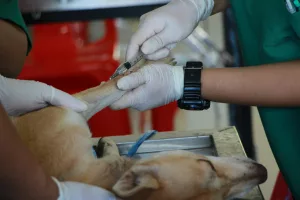Guinea pigs are known for their adorable squeaks and chirps that can often resemble the sounds of birds. But what does it mean when your guinea pig chirps like a bird? This behavior can indicate various things, from expressing happiness and contentment to signaling distress or fear. Interpreting Guinea Pig Chirping One of the most common reasons why guinea pigs chirp is to communicate with their owners or other guinea pigs. This chirping can be a sign of excitement, especially when they hear the rustle of food or the sound of familiar voices. It can also be a way for guinea pigs to express their contentment and happiness.
Excitement and Social Interaction
Guinea pigs are social creatures, and they thrive on interaction, both with humans and other guinea pigs. When they chirp, particularly in response to seeing a familiar face or hearing the crinkle of a food bag, it often indicates excitement. Imagine you’re bringing out their favorite treat; the chirping is their way of saying, “I’m thrilled about this!”
Example Scenario
Consider a scenario where you’ve just returned home after a long day. As you open the door, you hear your guinea pig chirping from across the room. This is a joyous sound, an indication that they’re excited to see you. Their chirping might be accompanied by other cues like popcorning—an adorable jumping motion that shows happiness.
Contentment and Happiness
A content guinea pig is a happy one, and chirping can be part of their expression of well-being. When they’re relaxed in their environment, surrounded by familiar scents and sounds, they might chirp softly. This behavior often occurs when they’re nestled comfortably in their bedding or cuddling with a guinea pig companion.
Case Study: Happy Chirpers
Let’s look at a pair of guinea pigs, Lily and Daisy. These two have lived together for years, sharing a spacious cage with plenty of hideouts and toys. Observations show that they often chirp when lounging together, a gentle sound that indicates their contentment. Their owner notes that the chirping is most frequent after meals, as they settle into a cozy nap.
Stress and Anxiety
On the flip side, chirping can also indicate stress or discomfort in guinea pigs. If your guinea pig is chirping excessively or in a high-pitched tone, it could be a sign that they are feeling anxious or fearful. Pay attention to their body language and other vocalizations to get a better understanding of their emotional state.
Recognizing Signs of Stress
Stress in guinea pigs can manifest in several ways beyond chirping. Look for signs like:
- Hunched posture
- Rapid breathing
- Reluctance to move or eat
These indicators, coupled with persistent chirping, may suggest your guinea pig is experiencing discomfort.
Practical Tip: Reducing Stress
To help your guinea pig feel more secure, ensure they have a quiet, stable environment. Minimize loud noises and provide hiding spots within their cage. A simple cardboard box can make a world of difference, offering a safe retreat when they feel overwhelmed.
Environmental Factors and Chirping
Guinea pigs are sensitive animals, and their chirping behavior can be influenced by their environment. Loud noises, sudden movements, or changes in their surroundings can trigger chirping as a sign of distress. Make sure to provide a calm and secure environment for your guinea pig to help reduce their stress levels and minimize chirping episodes.
Creating a Safe Environment
Designing a suitable living space is crucial. Consider these elements:
- Cage Placement: Keep their cage in a quiet area away from bustling household activity.
- Temperature Control: Guinea pigs are sensitive to temperature changes. Maintain a consistent, comfortable climate in their living area.
- Noise Levels: Avoid placing their cage near TVs or speakers that might emit sudden, loud sounds.
Example: Adjusting the Environment
Take the case of Sam, a guinea pig who suddenly began chirping more frequently. Upon investigation, his owner discovered that a new washing machine had been installed near his cage. The machine’s noise during operation was causing distress. By relocating the cage to a quieter part of the house, Sam’s chirping reduced significantly, and his behavior returned to normal.
Interactions with Other Animals
Additionally, guinea pigs may chirp during interactions with other animals or when they feel threatened. It’s essential to monitor their interactions with other pets and ensure they feel safe and secure in their living space.
Observational Insight
If you have other pets, such as dogs or cats, pay attention to how they interact with your guinea pig. A cat’s curious approach might trigger chirping, indicating a feeling of being threatened. Supervised interactions and gradual introductions can help your guinea pig feel more at ease.
Health Concerns and Chirping
In some cases, guinea pig chirping can be a signal of underlying health issues. Respiratory problems, such as a respiratory infection or allergies, can cause wheezing or chirping sounds in guinea pigs. If you notice persistent chirping accompanied by other symptoms like nasal discharge or labored breathing, consult with a veterinarian for a thorough health checkup.
Identifying Health Issues
Guinea pigs are prone to respiratory issues, and recognizing the signs early can be crucial for their health. Besides chirping, watch for:
- Nasal Discharge: Clear or colored discharge could indicate an infection.
- Labored Breathing: Difficulty in breathing or audible wheezing is a red flag.
Actionable Advice: Seeking Veterinary Care
If you suspect a health problem, don’t delay a visit to the vet. Early diagnosis and treatment can prevent more severe issues. A professional check-up will provide peace of mind and ensure your guinea pig receives the necessary care.
Preventative Health Measures
Regular health checks at home can help you catch potential problems early. Incorporate these practices:
- Weekly Weight Checks: Sudden weight loss can indicate illness.
- Regular Grooming: Brushing helps prevent skin issues and allows you to check for abnormalities.
- Observation of Eating Habits: Changes in appetite can signal health issues.
Case Study: Preventive Care Success
Consider Bella, a guinea pig with a history of respiratory issues. Her vigilant owner performs weekly health checks, which recently revealed subtle weight loss. A timely vet visit identified an early-stage respiratory infection, allowing for prompt treatment and a full recovery.
Understanding the Context of Chirping
It’s crucial to be attentive to your guinea pig’s chirping behavior and understand the context in which they are vocalizing. By observing their body language, environment, and overall well-being, you can decode the meaning behind their bird-like sounds and ensure they are happy and healthy.
Body Language Insights
Body language cues are invaluable in understanding your guinea pig’s emotions:
- Relaxed Posture: Indicates comfort and contentment.
- Erect Ears and Alert Eyes: Signify curiosity or mild stress.
- Flattened Body and Wide Eyes: Suggest fear or anxiety.
Building a Bond Through Communication
Understanding your guinea pig’s chirping is not just about addressing their needs; it’s also about building a stronger bond.
Tips for Strengthening Your Relationship
- Spend Quality Time: Regular interaction cements your bond and helps you understand their communication cues.
- Gentle Handling: Always approach them calmly and avoid sudden movements.
- Talk to Them: Your voice is comforting. Regularly speaking to them builds familiarity and trust.
Personal Insight: The Joy of Interaction
From personal experience, spending time with guinea pigs is incredibly rewarding. They are naturally curious and respond positively to gentle interaction. Whether it’s through playtime or quiet moments, these interactions deepen your relationship and enhance your understanding of their unique behaviors.
Conclusion: Embracing the Chirps
Embrace your guinea pig’s chirps as part of their charming personality. Each sound they make adds to their unique character and provides insight into their world. By paying attention to their chirping and responding with care and understanding, you create a loving and supportive environment where your guinea pig can thrive. Your attentiveness not only promotes their well-being but also enriches the joy they bring into your life.



